Metabotropic NMDA receptor function is required for NMDA receptor-dependent long-term depression
- PMID: 23431133
- PMCID: PMC3593861
- DOI: 10.1073/pnas.1219454110
Metabotropic NMDA receptor function is required for NMDA receptor-dependent long-term depression
Abstract
NMDA receptor (NMDAR) activation controls long-term potentiation (LTP) as well as long-term depression (LTD) of synaptic transmission, cellular models of learning and memory. A long-standing view proposes that a high level of Ca(2+) entry through NMDARs triggers LTP; lower Ca(2+) entry triggers LTD. Here we show that ligand binding to NMDARs is sufficient to induce LTD; neither ion flow through NMDARs nor Ca(2+) rise is required. However, basal levels of Ca(2+) are permissively required. Lowering, but not maintaining, basal Ca(2+) levels with Ca(2+) chelators blocks LTD and drives strong synaptic potentiation, indicating that basal Ca(2+) levels control NMDAR-dependent LTD and basal synaptic transmission. Our findings indicate that metabotropic actions of NMDARs can weaken active synapses without raising postsynaptic calcium, thereby revising and expanding the mechanisms controlling synaptic plasticity.
Conflict of interest statement
The authors declare no conflict of interest.
Figures
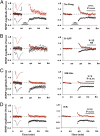
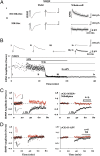
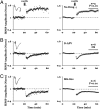
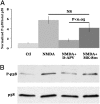
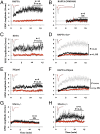
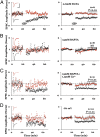
References
-
- Davies J, Francis AA, Jones AW, Watkins JC. 2-Amino-5-phosphonovalerate (2APV), a potent and selective antagonist of amino acid-induced and synaptic excitation. Neurosci Lett. 1981;21(1):77–81. - PubMed
Publication types
MeSH terms
Substances
Grants and funding
LinkOut - more resources
Full Text Sources
Other Literature Sources
Molecular Biology Databases
Miscellaneous

